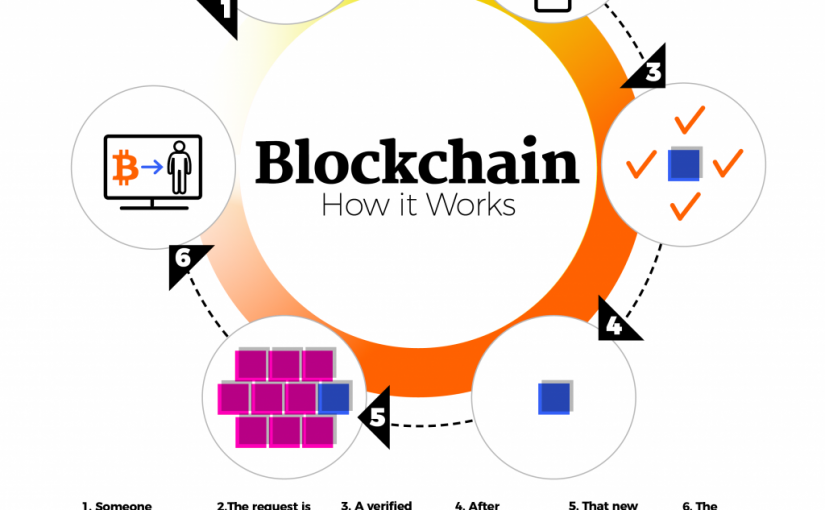The Supply chain has transformed, and companies have not updated the underlying technology for managing them in decades. With Blockchain technology, companies can rebuild their approach to supply chain management at the ecosystem level and go from the island of insight to an integrated global view.
“At its most basic level, the core logic of blockchains means that no piece of inventory can exist in the same place twice.”
-Paul Brody
EY Global Innovation Blockchain Leader
Here are some ideas on how Blockchain is revolutionizing the supply chain industry.
Everyone loves to hate middleman, but it turns out they are really useful. Until the advent of bitcoin and blockchain technology, the only way you could get a large number of entities to agree upon a shared, truthful set of data(such as who owns how much money).
This was for appointing an impartial intermediary to process and account for all transactions. Blockchain makes it possible for ecosystems of business partners to share and agree upon key pieces of information. Facebook’s Libra is also using blockchain technology.
Instead of having a central intermediary, blockchains synchronize all data and transactions across the network and each participant verifies the work and calculations of others. This enormous amount of redundancy and crosschecking is why financial solutions like Bitcoin are so secure and reliable.
Even as they synchronize hundreds of thousands of transactions across thousands of network nodes every week.
“The Core logic of blockchain applied to the supply chain”
The radically new approach to supply chain management.
Apply the same security and redundancy to something like inventory — and substitute supply chain partners for banking nodes. You’ll have the foundation for a radically new approach to supply chain partners for banking nodes. You’ll also have the foundation for a radically new approach to supply chain management.
The use cases for this new way of working are compelling.
At its most basic level, the core logic of blockchain means that no piece of inventory can exist in the same place twice. Move a product from finished goods to in-transit, and that transaction status will update for everyone, everywhere, within minutes.
With Blockchain you have full traceability back to the point of origin.
Before diving into the pool of ” How Blockchain is Revolutionizing the Supply Chain Industry” let’s take a brief look at the definition of Supply Chain and Blockchain.
Blockchain
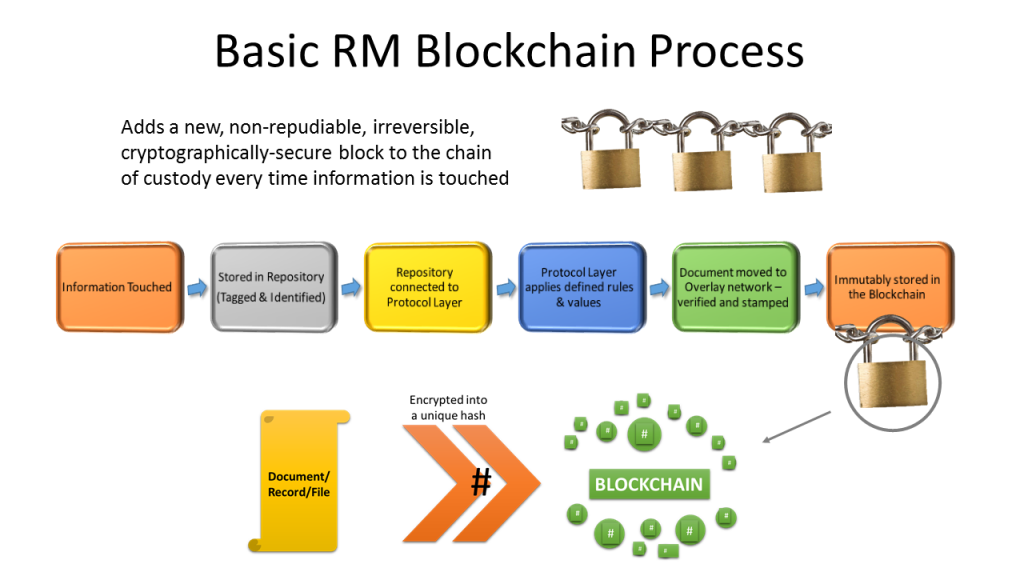
Most people have heard the phrase, “Blockchain is the greatest invention since the Internet ” or ” Everything will be Blockchain in a few years.”
These phrases tend to leave people more confused then they were previously. Blockchain is a decentralized, distributed database that holds digital records securely. Furthermore, although all records are transparent and accessible to the public, they are not altered, deleted or edited.
All data inserted into the blockchain remains impaired permanently. Each transaction or record inserted in the Blockchain registers a different “Block” on the chain.
Basically, Blockchain provides a method of record-keeping which is highly secure and more efficient for businesses/individuals to work with. BlockChain along with Ai is also helping to shape the future of robotics in various ways.
Robotics Programming Language for robotics uses AI and blockchain together can add efficiency to autonomous cars, or they can help in bitcoin mining.
Supply Chain Management (SCM)
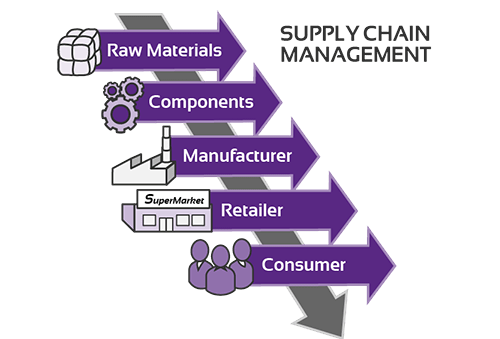
Nowadays we have the luxury of having ready-made, high-quality products right on our doorstep. It’s easy to go to a store, buy a shirt, and not think of where that shirt came from or how it was manufactured. That shirt came from how it was manufactured.
For that shirt or product to make it store shelves it must go through plenty of hands stemming all the way from the provider of the raw materials, to the retailer who is giving you the ready-made product.
The process which links all the parties involved in delivering you the ready-made product is called the Supply Chain.
Logistics is a huge aspect of Supply Chain Management.
Products are shipped, stored in warehouses, and go through customs. The entire process is time consuming, costly, and many times complicated. In addition, since global trade involves dealing with foreign organizations, importers and exporters may have to deal with political outcomes, international law, and high tariffs.
“Through blockchains, companies gain a real-time digital ledger of transactions and movements for all participants in their supply chain network. But don’t let the simplicity of the tool overshadow how transformational it is.”
Paul Brody
EY Global Innovation Blockchain Leader
Blockchain Stepping In
Some of the most urgent issues facing supply chains can be addressed through blockchain technology, as it provides novel ways to record, transmit, and share data.
In essence, a blockchain is a unique database system created and maintained by participants in a decentralized network. It offers a secure and reliable architecture for conveying information and transactions ( e.g. the exchange of data and assets among participants in a supply chain), which can be recorded digitally.
As the distributed ledger is decentralized, each stakeholder maintains a copy, which prevents a single point of failure or data loss. This also means blockchains are highly resistant to altering or tampering. Such accurate and tamper-proof records secure data integrity and can be accessed to make regulatory compliance easier.
Ultimately, blockchain can increase the efficiency and transparency of supply chains and positively impact everything from warehousing to delivery to payment.
All parties involved from beginning to end in the supply chain will be aware as the product is transacted and handled from party to party at all times.
Through the implementation of Blockchain technology in the Supply Chain Industry, products can be tracked and traced throughout their entire process.
Traceable and Immutable Records
Blockchain data is immutable and digital signatures which require to confirm information ownership. If multiple companies work together they can use a blockchain system to record data about the location and ownership of their materials and products.
The data is stored in the blockchain, which offers a full history of all items in the supply chain. Any member of the supply chain can see what is going on as materials move from company to company. These data records cannot be altered and are highly Traceable.
In the event of a defective product, the source of the problem can be identified more quickly, which improves the efficiency of product recalls and disruption resolution between stakeholders in the chain.
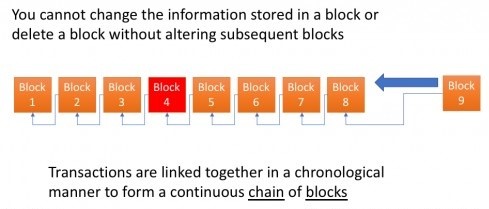
Having a transparent and complete inventory of product flow help businesses make better decisions.
It gives stakeholders and customers more confidence in the products’ quality. The improved transparency is also a tool for fighting fraud and counterfeiting.
Cost Savings
Inefficiencies in the supply chain create a lot of waste. This is especially prevalent in industries that have perishable goods, such as the food industry.
The improved tracking and data transparency that blockchain offers can help the business identify. These wasteful inefficiencies so they can implement targeted cost-saving measures.
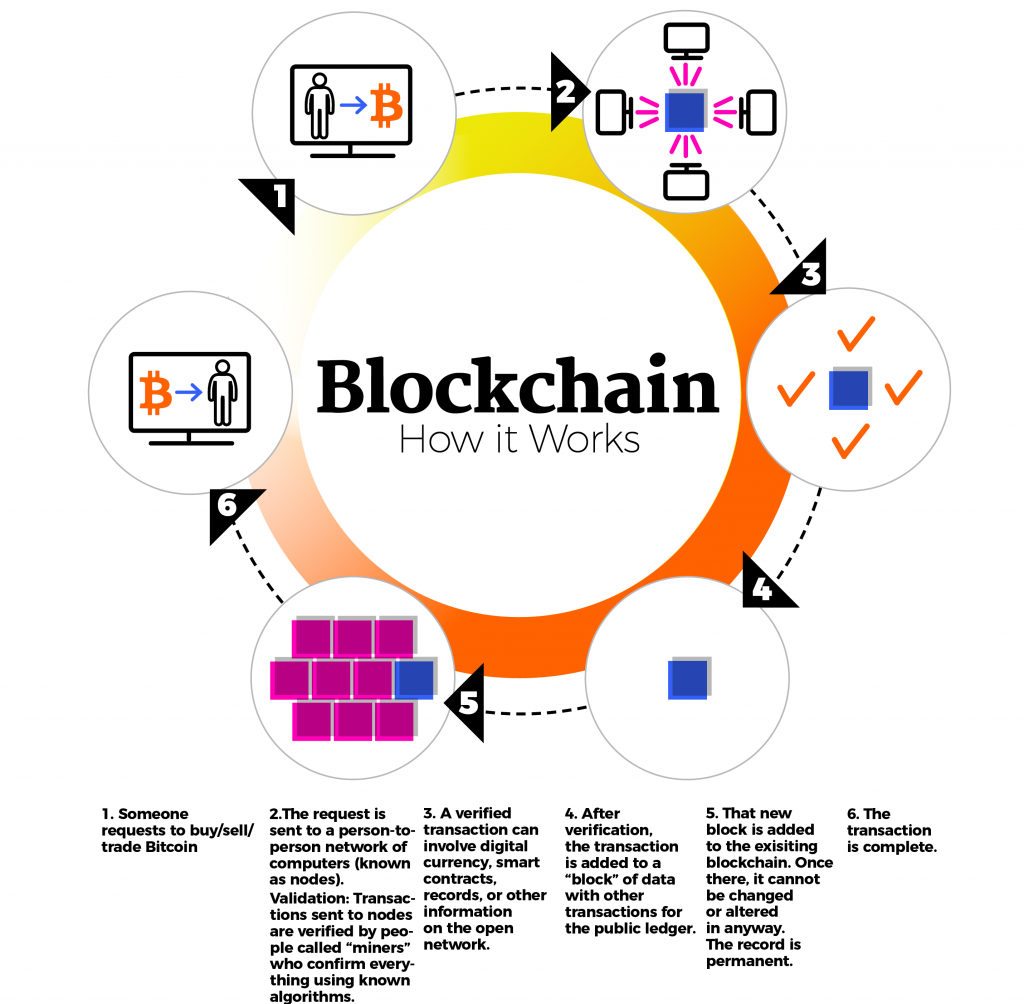
The use of blockchain can also eliminate fees associated with funds passing into and out of various bank accounts and payment processors. Such fees cut into profit margins, so being able to take them out of the equation is significant.
Interoperability
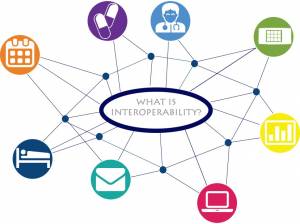
One of the problems with current supply chain technology is not being able to integrate data across every partner in the process.
In contrast, blockchains are built as distributed systems that maintain a unique and transparent data repository. Each party in the network contributes to adding new data and verifying its integrity.
This means that all parties involved in the network. So one company can easily verify the information being broadcasted by another.
Replacing Electronic Data Interchange Systems
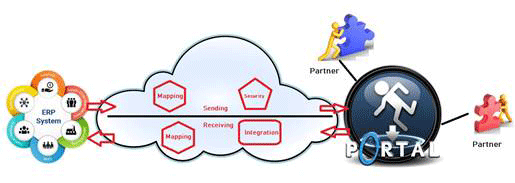
Many companies rely on Electronic Data Interchange (EDI) systems to send information to each other. However, this data goes out in timed batches rather than in real-time.
If a shipment goes missing or changes in pricing, other participants in the supply chain will get this information by involving parties. Also, read how AI will shape the future of the internet.
Transparency
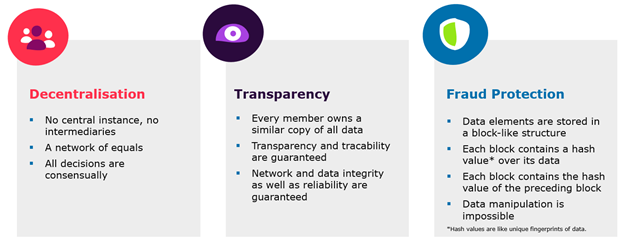
The blockchain is a shared database that ensures honest transparency.
All partners have the responsibility to upload their information and data about the product. A digital collection of accurate data improves accountability and trust between partners. Blockchain technology can show updates to the product in mere minutes.
Everyone involved knows exactly where a product stands at all times. You can see exactly where a product is, how it’s being made, and when it will be delivered all in one place.
Streamlined
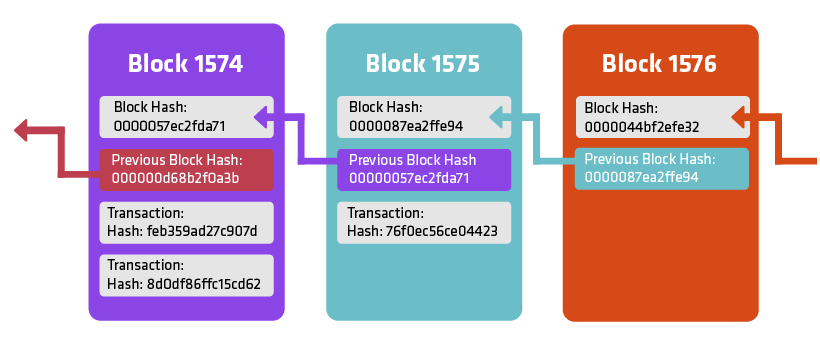
All of the logging involved with the digitally done blockchain.
This leads to less administrative work and more consistent and speedy data tracking. With the blockchain, you cut out the middleman and sign on to the blockchain to instantly download information. Everything is in one spot, making communication and operations highly streamlined.
The blockchain is global and scalable. The technology can support worldwide partnerships and communications just as fast as regional partnerships. This makes it the ideal solution for an economy of globalization.
Enhanced Analytics
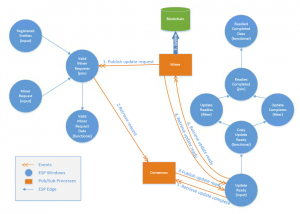
The blockchain offers complex solutions to analyze the uploading data.
Blockchain can help create forecasts and predictions based on previous data, and it can allow users to pinpoint legs in the supply chain.
These data analytics are proving invaluable to companies who want to minimize supply chain expenditures and grow their businesses.
Customer Satisfaction
The blockchain technology can also use for boosting customer satisfaction. Business owners can use the blockchain database to see where items are in production and shipment to build a delivery timeline for their customers. It also has a social advantage.
A clothing brand with a dedication to fighting sweatshops may give their customers access to the blockchain. Showing them a social consciousness approval form, and a labor union sheet.
A World of Potential
The Wall Street Journal recently posted an article that exclaimed, “after initial tests, 12 of the world’s biggest companies, including Walmart and Nestle, are building a blockchain to remake how the industry tracks food worldwide.”
The blockchain is already revolutionizing the financial world. It’s only a matter of time until it takes over every other industry.
A technology like this is a generational technology, something that will change the way the world works. The blockchain technology will update a 200-year-old system which makes it more reliable, secure, and transparent.
